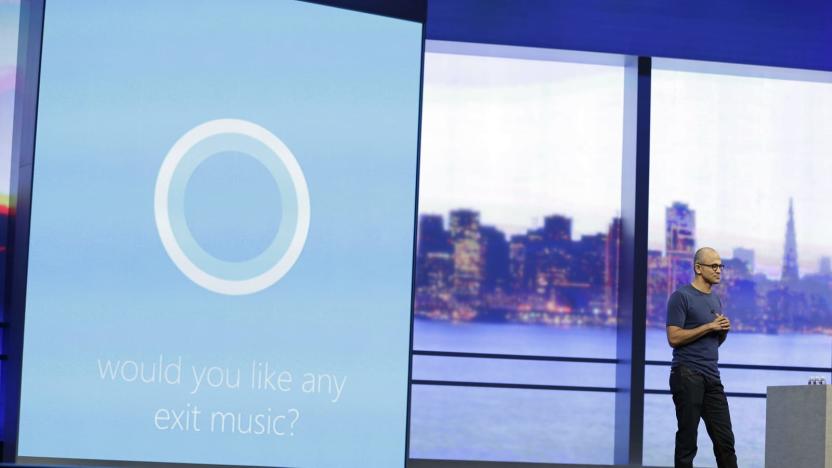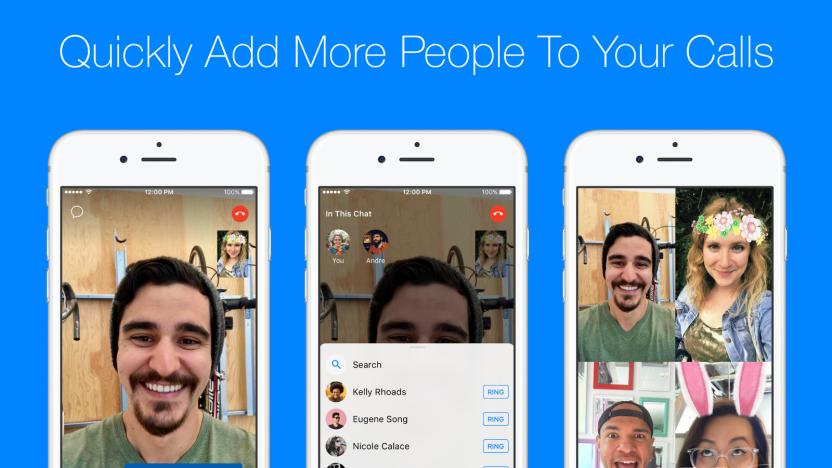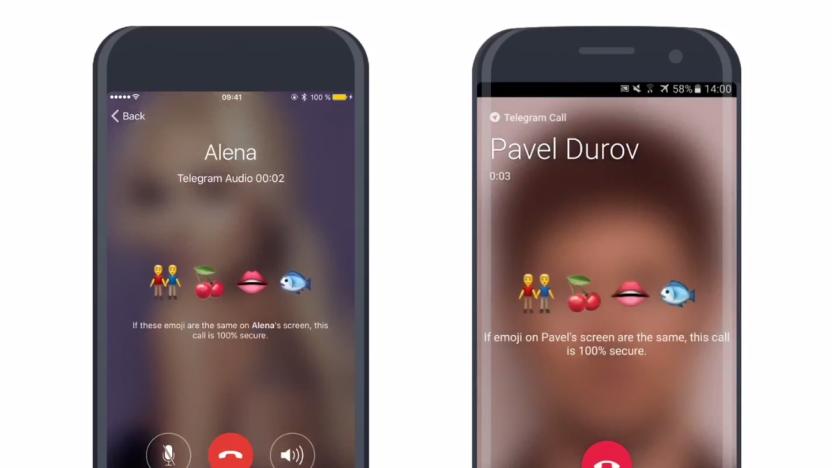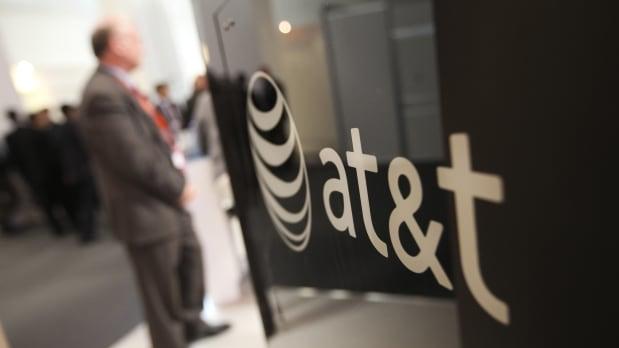voicecalls
Latest

Microsoft says humans will still transcribe Cortana and Skype audio
Just like seemingly every other major tech company with a voice assistant or voice chat service, it emerged that Microsoft contractors were listening to Skype and Cortana recordings. Apple, Google and Facebook have temporarily halted similar efforts, and Amazon lets users opt out of having Alexa conversations reviewed by humans. But Microsoft will continue the practice for the time being despite possible privacy concerns.

Facebook Messenger adds an easy way to start group calls
If you've ever tried initiating a group voice or video call on Messenger, then you know that it's not intuitive at all. You'd have to hang up on your friend, start a new group convo and then call from within that window to be able to talk to several friends at the same time. Facebook must have realized that the process shouldn't be more complex than setting up a three-way call on a landline, so it has launched an easier way to initiate group calls. Now, when you want to bring the rest of your circle into an ongoing call, you simply have to tap on the screen and select the "add person" icon.

Telegram's voice calls are secured by emojis
Questions about security have plagued messaging app Telegram recently, since the platform was supposedly cracked by Russia's state security agency during the election. Telegram uses its own security protocols instead of more tried-and-true options, which has been a point of criticism. Now, Telegram is adding voice calls to its offerings, and those calls will be secured by emojis.

Facebook's Messenger app for Windows 10 now does calls
Facebook has quietly upgraded its Messenger app for Windows 10 with the ability to make voice and video calls, VentureBeat has discovered. No more leaving the app to ring up a friend through a browser. If that new-but-familiar phone or camera icon that you're probably used to seeing on iOS and Android has that green bubble up, your friend's online -- just tap either to start a call.

Slack finally opens up work calls to everyone
After testing voice calls for the past few months, Slack is now opening up the feature to all of its workaholic users. It works as you'd expect: you can initiate calls with a new telephone icon in Slack's desktop offerings, or by clicking through a dropdown menu on its iOS and Android apps. Then you can chat with coworkers using your voice, just like olden times. Any Slack user will be able to make individual calls, and teams who pay for the service can also initiate group calls for any Slack channel or group chat.

Slack to start integrating native voice chat into its app
A couple of months ago, you could start making Skype calls from within Slack, an award-winning work chat app that's pretty popular with a lot of companies (we certainly use it over here in the Engadget office). Now, however, voice calls are simply baked into the app itself, without you having to use an external service. The feature is in beta right now, and testing will roll out in Slack's desktop apps as well as in Chrome. The voice calling feature actually comes from Slack's acquisition of Screenhero over a year ago. If you have it, you'll spot a phone icon at the top of your screen next to the info button. Click it and you can initiate a voice call much like most other chat apps out there. This doesn't work with just individual folks either; you can also make channel-wide calls with up to 15 folks, but this is only for Slack users who pay for the service. And because this is Slack -- known for its wide range of emoji -- you can also respond to voice chats with one of several colorful reactions imposed over your user icon. This isn't to say that Slack will stop supporting the aforementioned Skype or other voice chat services; it's just another option. We should also note that rival Hipchat has had voice and video chat for awhile now. Still, for loyal Slack users, this is great news; here's hoping that video support will be coming too.

Snowden documents reveal how the NSA searches voice calls
The Intercept has released a new document from Edward Snowden's cache of government files describing how the NSA has been converting voice calls to searchable text documents for nearly a decade. The NSA has long monitored signals intelligence (SIGNIT) around the world (as is its primary function), especially in active combat zones like Afghanistan and Iraq as well as in Latin America. Traditionally, this sort of data gathering required that a live operator listen in on calls and translate them in real-time. However, the NSA has reportedly developed what it calls "Google for Voice"; an automated system that provides a rough but keyword searchable transcription. According to the documents, the NSA has also developed analytical programs and sophisticated algorithms to flag conversations for human review.

AT&T set to beat Verizon by deploying high-definition calls over LTE this month
With so many apps, services and features on today's smartphones, it's easy to forget that there are still plenty of people out there who still actually make calls. Eager to leverage the speed and efficiency of existing LTE networks, providers like AT&T and Verizon are busily trying to enhance voice call quality with a technology called Voice over LTE (VoLTE). Given the vast delays in deploying the service -- both carriers wanted to launch it in 2013 -- it's apparent that VoLTE has presented its fair share of technical difficulties. AT&T, however, is now ready to flip the switch in select markets: sources familiar with the matter have indicated that the carrier plans to beat Verizon to the punch by rolling out VoLTE beginning on May 23rd.

FCC Chairman Tom Wheeler backtracks, says he's against in-flight voice calls
When FCC Chairman Tom Wheeler confirmed the agency's proposal to lift the ban on in-flight voice calls, he also issued a statement that sounded like he favored the change. According to AP, that didn't sit well with a bunch of folks , and the FCC's phones rang off the hook with complaints -- one representative even called him a "wireless lobbyist." Well, it looks like that's caused the chairman's quick change of heart: while he previously called the agency's rules "outdated and restrictive," he now agrees with passengers who'd prefer that cellular services remain banned on planes. If you were one of those who got excited at the prospect of making calls in the air, though, don't feel bad that Wheeler doesn't have your back anymore. In a new statement on FCC's website, he says that even if the agency lifts the ban, it's still the carriers that'll have to decide whether to adopt the policy and allow voice connectivity.

Facebook Messenger on Android loaded with free voice calls for Canadian users
Android's flavor of Facebook Messenger has just been updated with VoIP functionality for the social network's Canadian users. There's no word when Android faithful in the US will snag the functionality, but Canucks can at least ring their American counterparts who wield the iOS app. Version 2.3 of the mobile messenger also makes group conversations accessible in the sidebar, allows them to be named from the top of a talk and makes them searchable by name and friends. Hit the neighboring source link to grab the revamped software.

Facebook starts turning on free voice calls for iPhone users in the US (update)
Earlier this month word got out that Facebook was trialing a free voice calling feature in Canada. We said that, if those tests went well, the company would expand to the US. Well, things must have gone swimmingly because, just two weeks later, American customers are starting to see the same feature turn up in the Messenger app. After updating to the latest version, just tap the "i" icon in the top right hand corner while viewing a conversation with a person and you'll see a button for a "free call." The voice call needs to be made over WiFi, however, so don't expect to completely replace your contact list and dialer yet (update: calls can be made over a cellular data connection as well). We've reached out for comment from Facebook, and we'll let you know the moment we hear back. In particular we're wondering when Android users can expect to see the same option turned on for them. Let us know in the comments if Facebook's VoIP has been turned on for you. Update: We just heard back from a Facebook spokesperson who said "you can only connect with a Facebook friend who also has [the latest] Messenger installed on their iPhone" and that "it's only available on iOS." If you satisfy the requirements and you're still unable to see the Free Call feature, it might not be available yet for you or your friend. We also confirmed that there are no special privacy settings to enable or disable if you want it. Join us after the break for our first impressions.

Orange begins first HD Voice calls between countries, decides clarity knows no borders
Orange was one of the vanguards of high-quality cellphone calls, having kicked off HD Voice with a Moldovian launch back in 2009. The premium chatter has always stopped at the border, however -- even two Orange customers couldn't see the improvement if they were in different countries. The carrier is bridging that gap with claims that it's the first to support improved voice on the international level: starting today, Moldovans and Romanians on Orange can give each other a ring and expect the extra-smooth calling they're used to from local conversations. We don't yet know if and when other countries will hop on the bandwagon. We've reached out, but it's possible that any upgraded links between other countries will come only from case-by-case negotiations. Those in Bucharest might want to track down any relatives in Chișinău for a quick chat in the meantime.

XDA brings voice calls to the 3G-enabled Samsung Galaxy Tab 10.1
While 3G Galaxy Note 10.1 owners use their Bluetooth-enabled S-Pen to make calls on their tablet, those with the equivalent Galaxy Tab are left out in the rain. Fortunately, the folks over at XDA Developers have leveled the playing field with four roms that bestow call-making powers on 3G variants of that particular slate. Three ICS and one Jelly Bean builds exist, with the only fault that sometimes you'll have to switch to 2G to get calls working properly. If you're really interested in stretching the definition of "phablet" beyond breaking point, head on down to the source links for more information.

Microsoft details deep Skype integration in Windows 8
Microsoft's been letting loose all of Windows Phone 8's secrets this morning, and the latest tidbit is all about VoIP calling. Turns out, the team in Redmond's really putting that money it spent on Skype to good use by integrating the video chatting/VoIP service deeply in its new mobile OS. From a user perspective, incoming Skype calls are treated like cellular communications, meaning that they appear as regular calls and are integrated with standard phone features -- like call waiting -- to maintain a seamless calling experience. The VoIP apps continue to run in the background, of course, thanks to WP8's new multitasking capabilities, and VoIP integration will be available to all developers. To check out the latest updates from Microsoft's Windows Phone event, visit our liveblog!

Gmail's free voice calls will be available through all of 2011, still only in the US
While the rest of the world has yet to taste the sweet elixir of free voice calls from its email supplier, US-based Gmailers are having their fun extended for a whole new year. Back in August, Google made it possible to dial up voice numbers in the US and Canada for free, and now, in the true holiday spirit of keeping users happy and advertising dollars flowing, Google promises to keep that service free through all of 2011. And if it decides to extend it into 2012, we could have free calls until the end of the world.

Orange begins HD Voice trial in Southern England, leaves out Buckingham Palace
Remember the good news that Orange brought to the UK on our alcohol-fueled New Year's Eve? We thought so. Anyway, it looks like said fruit company's still on course to "a new era for UK mobile communications" as it launches HD Voice trial in England today. Lucky participants across Bristol, Reading and Southampton will benefit from "crystal clear" voice calls, courtesy of the wider speech bandwidth -- 50–7000 Hz as opposed to the current 300–3400 Hz. Sadly, Orange isn't keen on dishing out deets about the special hardware, but our friends over at What Mobile had the chance to play with a modified Nokia X6 from yesterday's demo -- "It was like listening to AM radio and then switching over to listen to a CD." If all goes well, we'll meet the rest of the gang when HD Voice is rolled out "before the end of the summer." Press release after the break.

iPad won't handle GSM voice calls -- or will it?
Like the camera references, this could just be another case of vestigial SDK weirdness -- but for whatever reason, devs have noticed (and we've been able to reproduce) a "Touch to return to call" bar in the iPad emulator just like you'd expect to find on an iPhone during a traditional GSM call. It certainly seems like Steve would've bothered to mention during today's festivities if you could do something crazy like pair up a Bluetooth headset and go to town (and you'd need a voice plan on top of that $29.99 data anyway), so who knows: either Apple's just made every UI element as adaptable as possible regardless of whether it's applicable to a particular device, they're planning a higher-res iPhone down the road, or they're integrating the bar into some VoIP action. Or... you know, none of the above. [Thanks to everyone who sent this in]

3G GSM encryption cracked in less than two hours
Looks like all that GSM code-cracking is progressing faster than we thought. Soon after the discovery of the 64-bit A5/1 GSM encryption flaw last month, the geniuses at Israel's Weizmann Institute of Science went ahead and cracked the KASUMI system -- a 128-bit A5/3 algorithm implemented across 3G networks -- in less than two hours. If you must know, the method applied is dubbed 'related-key sandwich attack' where multiple values of known differentials are processed through the first seven rounds of KASUMI, then using resulting quartets that are identified sharing key differences, subkey materials can be obtained in round eight to build up the 128-bit key. Sure, it's hardly snooping-on-the-go at this speed, but worryingly this was only an 'unoptimized implementation... on a single PC.' At the same time, the paper condemns the presumably red-faced GSM Association for moving from MISTY -- a more computationally-expensive but much stronger predecessor algorithm -- to KASUMI. Guess we'll just have to stick with Skype.

GSM call encryption code cracked, published for the whole world to see
Did you know that the vast majority of calls carried out on the 3.5 billion GSM connections in the world today are protected by a 21-year old 64-bit encryption algorithm? You should now, given that the A5/1 privacy algorithm, devised in 1988, has been deciphered by German computer engineer Karsten Nohl and published as a torrent for fellow code cracking enthusiasts and less benevolent forces to exploit. Worryingly, Karsten and his crew of merry men obtained the binary codes by simple brute force -- they fed enough random strings of numbers in to effectively guess the password. The GSM Association -- which has had a 128-bit A5/3 key available since 2007, but found little takeup from operators -- has responded by having a whinge about Mr. Nohl's intentions and stating that operators could just modify the existing code to re-secure their networks. Right, only a modified 64-bit code is just as vulnerable to cracking as the one that just got cracked. It's important to note that simply having the code is not in itself enough to eavesdrop on a call, as the cracker would be faced with just a vast stream of digital communications -- but Karsten comes back to reassure us that intercepting software is already available in customizable open source varieties. So don't be like Tiger, keep your truly private conversations off the airwaves, at least for a while.











